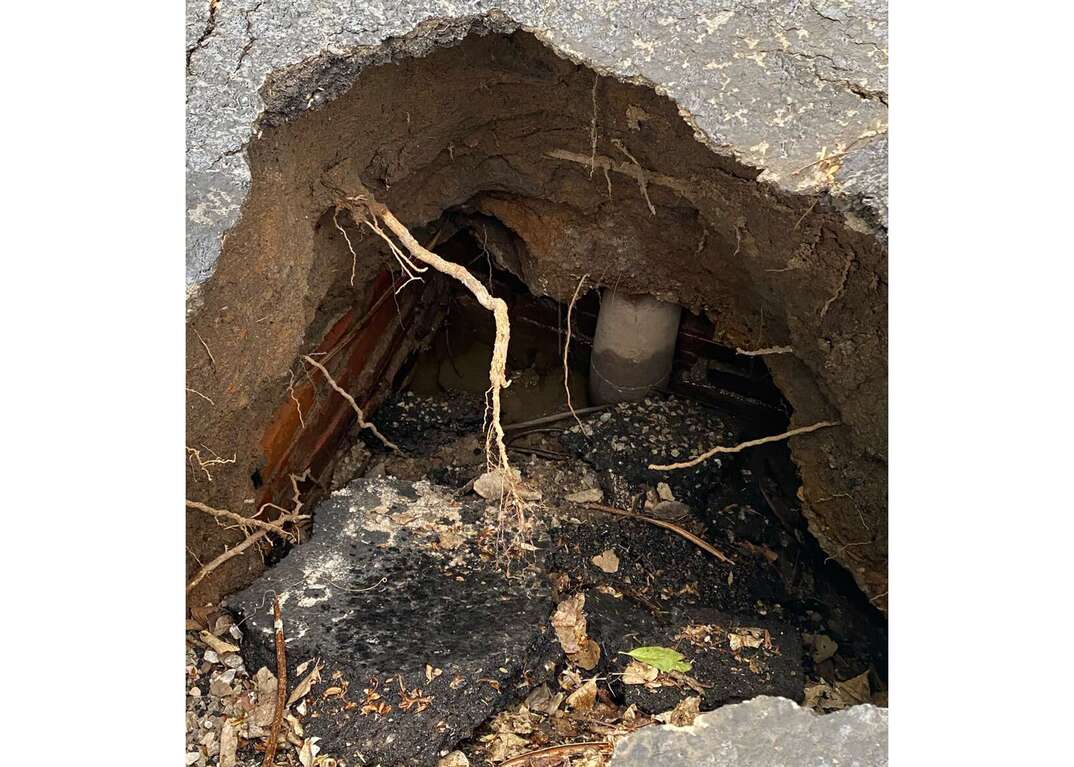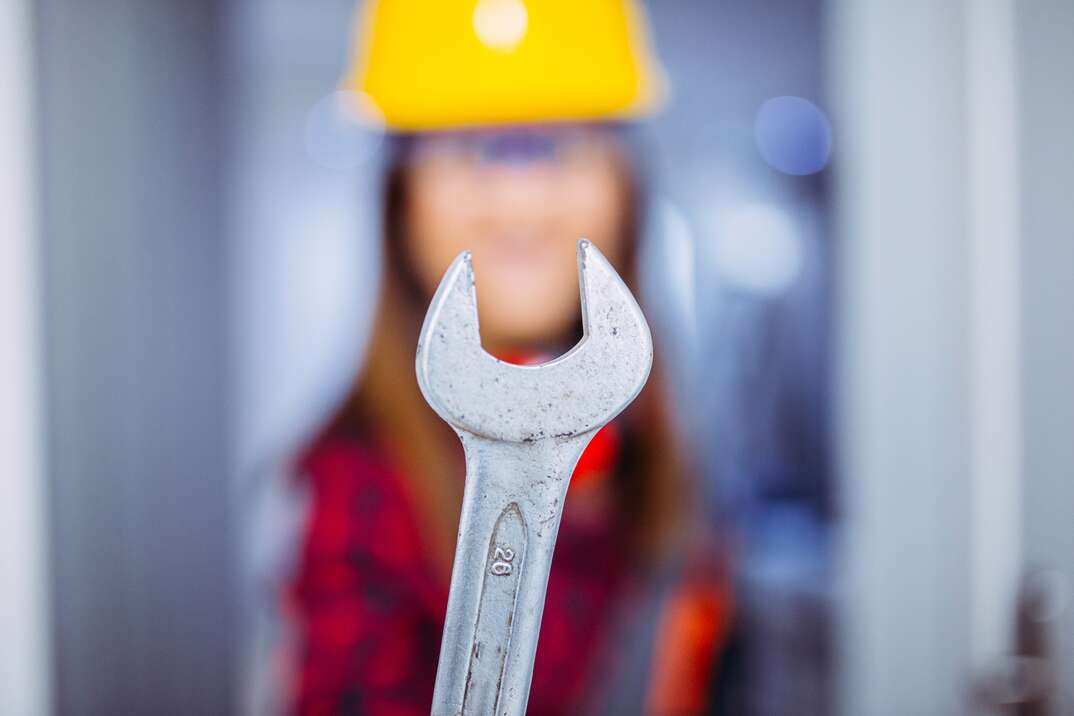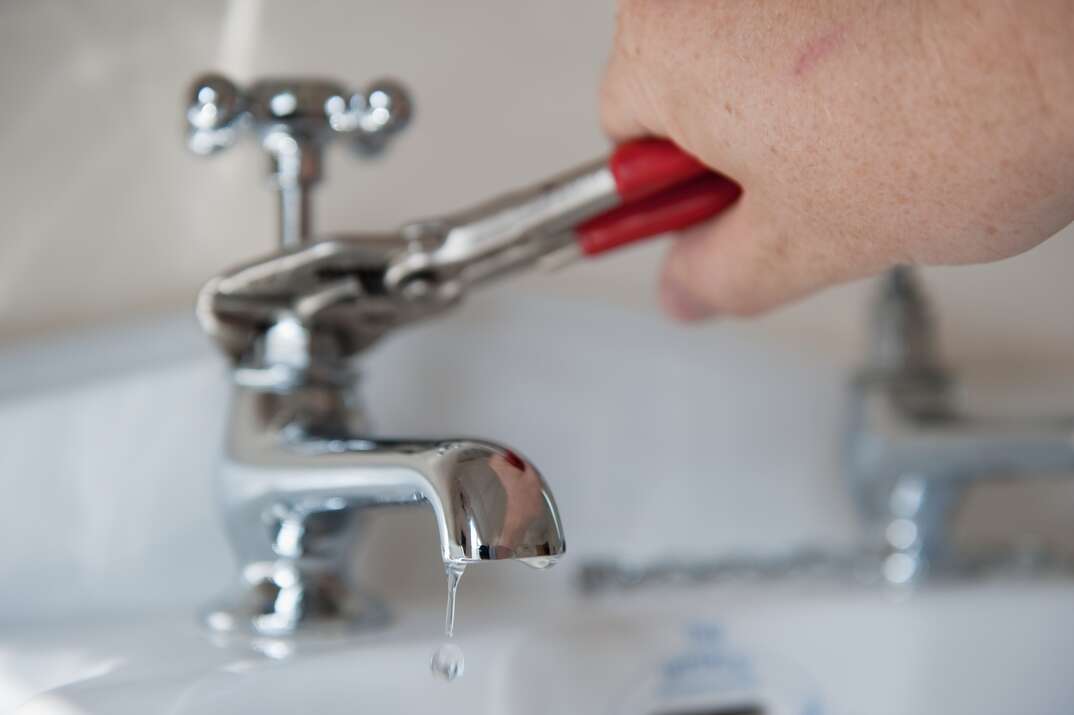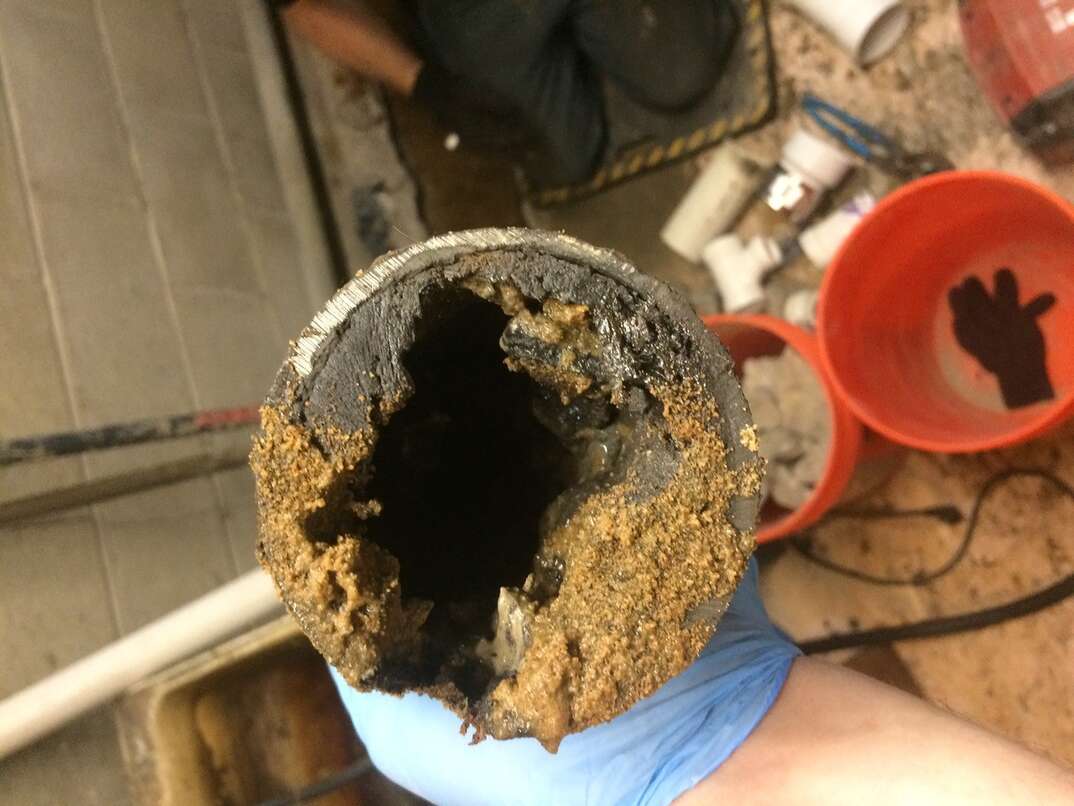Did You Know a Leaky Water Line Can Cause a Sinkhole?

Given that they happen underground, sinkholes seem like a mystery to many people. How does a sinkhole start, and where will one develop?
This May Also Interest You: What’s an Exterior Water Service Line?
If you have an underground water line leak you don't know about, you could have a sinkhole developing on your property, even if they aren't common in your area.
How Can a Leaking Underground Water Line Cause a Sinkhole?
When you have a leaking water line in your yard, the excess water goes into the ground, where it can shift and erode the dirt. The ground in your yard naturally has pockets of air and water. The erosion creates even bigger pockets and can make the ground unstable. If the leaking water moves enough dirt, the ground above it can collapse, resulting in a sinkhole. This usually happens if you have an undetected leak that continues over time. Erosion can happen faster if you have sandy soil. The smaller particles move faster than other types of soil, such as clay soil.
What Should You Do If You Believe an Underground Water Leak Is Causing a Sinkhole in Your Yard?
If you've never dealt with one before, you might not be sure what to do about a sinkhole in your yard. You might want to ignore the situation, but acting fast can save you time and money. It also keeps the problem from getting worse.
Staying away from the area is the first step. Even if the sinkhole seems to be small and contained, you can't tell for sure what's happening underground or how large the issue is. It's also a good idea to stay out of your home until you have the situation assessed, since a sinkhole can cause your house to lean, shift or even collapse.
Call your water company if you suspect the sinkhole is due to a leak. The technicians will assess the situation and determine if a water line leak is the culprit. Your water company can advise you on how to proceed. The location of the leak often affects the next steps. If the leak is between the main supply line and your water meter, the utility company should handle it. However, if it's between your meter and your home, you'll likely need to call a plumber and pay for the repairs yourself.
Plumbers have tools to detect leaks and find their location. Replacing the water line is sometimes necessary to correct the issue. You'll also need to have the sinkhole filled. A landscaping company or dirt-fill contractor should be able to help. Larger sinkholes might require help from an engineer to plan the best way to resolve the issue.
More Related Articles:
- Water Line Insurance: What It Is and Why You Need It
- Does a Home Warranty Cover Water and Sewer Lines?
- Pipe Burst? Here’s What to Do Next
- Should You Go Pro or Try DIY for Your Sewer Line Repair? Here’s What You Should Know
- Prevent Frozen-Pipe Problems by Knowing These Things Down Cold
Signs of an Underwater Leak and Potential Sinkhole
Spotting the signs of an underwater leak early can help you avoid a sinkhole. Some of the signs are subtle, and others might be easy to ignore. Issues that should raise a red flag include:
- Wet or soggy areas in your yard
- Extra-green spots in the yard
- Higher water bills with no valid reason
- Water noises when you're not running the water
- Low water pressure
- Cracks in the paved areas around your home, such as driveways, sidewalks and patios
- Depressions around your property
- Foundation cracks
You can also check for a leak by shutting off the main water supply in your home and waiting. If your water meter keeps moving, you have a leak somewhere in the system. Monitoring your water bill and yard can help you detect a leak early before it causes larger issues, such as sinkholes and structural damage to your home.


